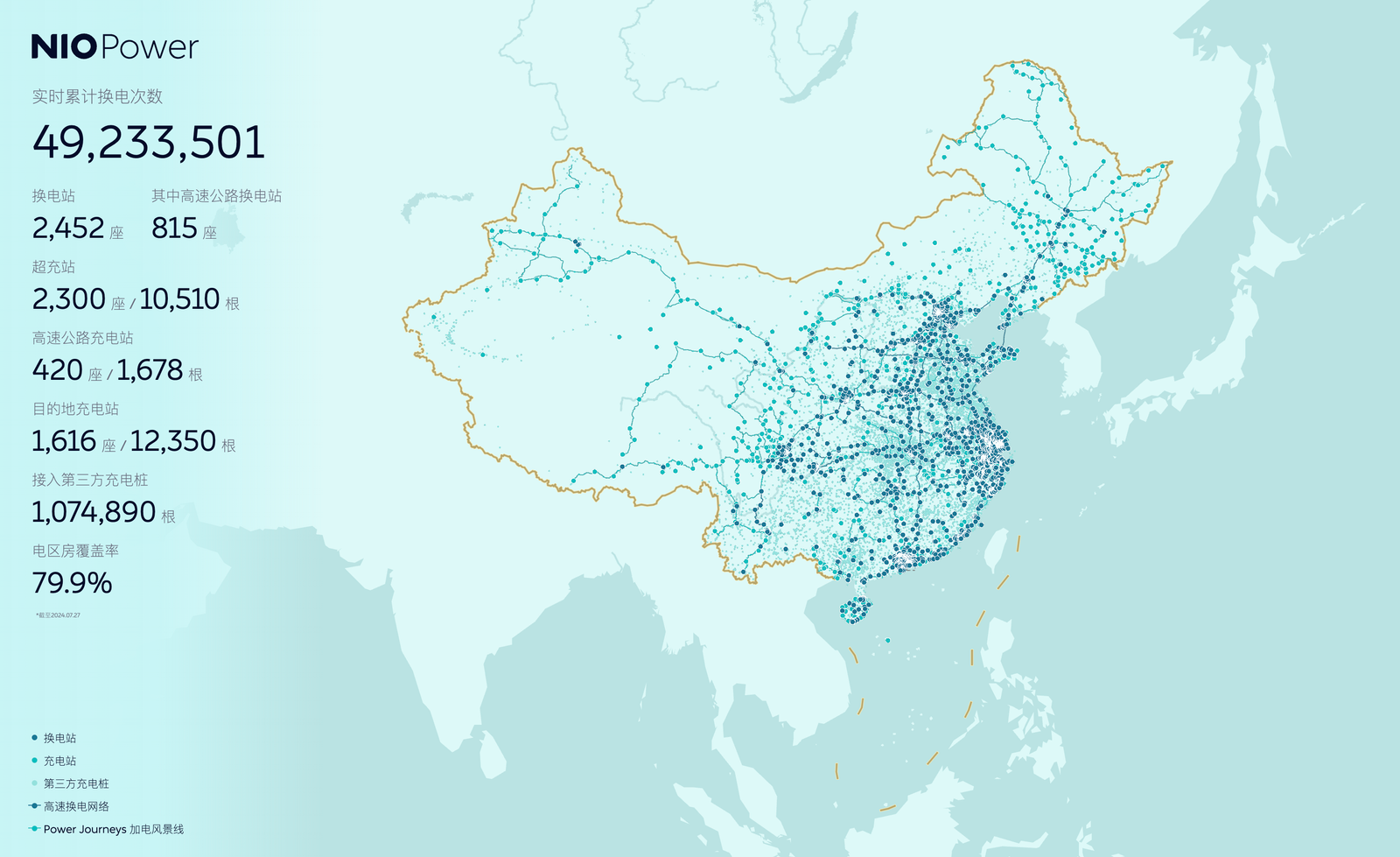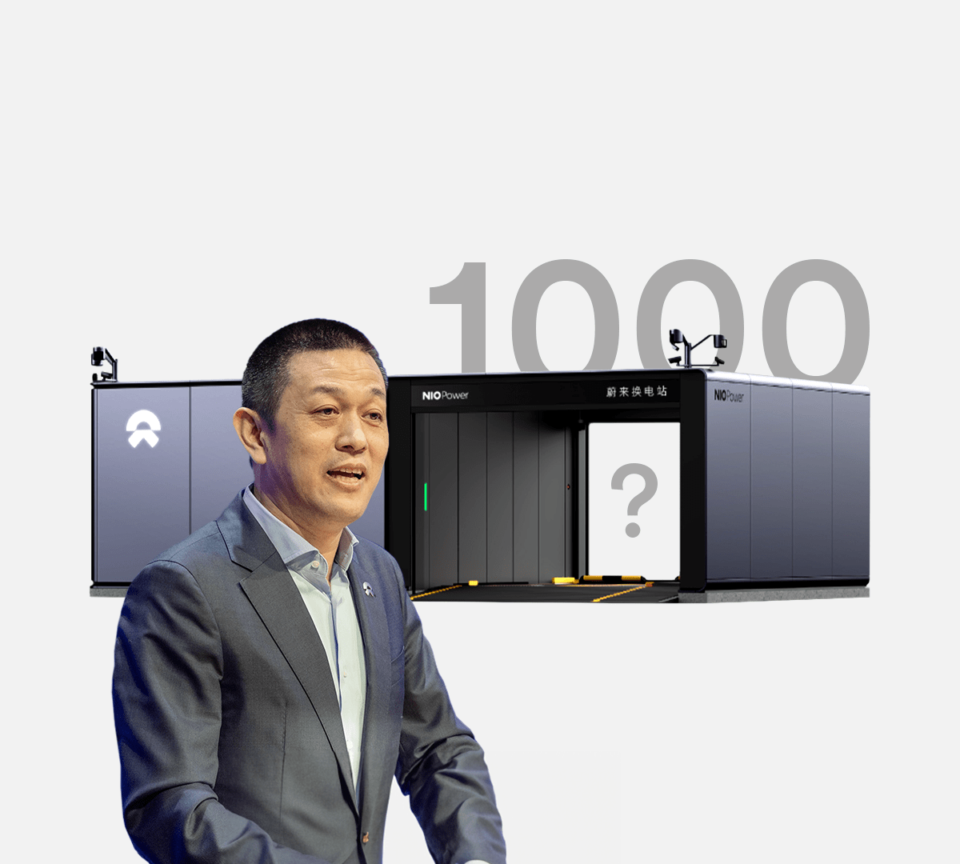Written by Cláudio Afonso | LinkedIn | X
By the end of 2022, the electric vehicle (EV) manufacturer Nio had 1,305 battery swap stations across China. At its 2022 annual event, which was held a few days before the year’s end, the company promised to install 400 stations in China during 2023.
Two months later, the EV maker said it decided to increase the target from 400 to 1,000 stations and it fulfilled it by the year ending it with 2,310 stations across the country.
One year later, in December 2023, Nio renewed the annual target and said it would again build and open 1,000 new battery swap stations this year.
As of today, Nio has opened 142 stations this year but needs to add another 858 to meet its annual target set during the 2023 Nio Day event. The EV maker will, over the next weeks, reach a total of 50 million battery swaps provided.

As initially reported by the local media Sina Technology, CEO William Li has admitted that this year’s goal might be missed estimating a delay of one or two months, which would result in 1,000 stations installed in China from January 2024 until the end of February 2025.
As the company prepares to start sharing the fourth generation stations with its battery swap partners starting , Li announced the Nio will open in Wuhan a new factory, the third one dedicated to build the battery swap stations.
Following the other two factories in Hefei and Kunshan, the third factory will start production in September contributing to the ramp up of new stations in the last quarter of the year.
In mid June, the company opened the first batch of fourth generation Battery Swap Station, which allows a faster battery replacement.
Over the last months, the company has been forming battery swap partnerships with several key automotive and energy companies including Changan Automobile, Geely Holding Group, Chery, and Jianghuai Automobile Group (JAC), and others.
According to Nio’s official website for the Chinese market, the company has — as of Friday — 2,452 stations of which 815 are located in highways and 2,300 charging stations equipped with 10,510 chargers.
As it prepares to enter the United Arab Emirates (UAE) market later this year, the Shanghai-based electric vehicle maker has just concluded a two-week test of its vehicles under extreme heat conditions.
The team subjected Nio’s vehicles to a range of harsh conditions, including temperatures reaching up to 123.8°F (51 degrees Celsius), solar radiation levels as high as 1000 watts, fine sand, dunes, and mountain roads, according to a post on Weibo from the automotive blogger Artur Shen.
Written by Cláudio Afonso | LinkedIn | X

